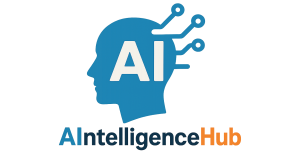
AI is revolutionizing employment ethics by redefining workforce dynamics, challenging traditional roles, and raising concerns about ethical hiring processes. As AI systems are only as unbiased as the data they’re trained on, the potential for discrimination is significant. Privacy concerns also arise as AI manages vast personal data, highlighting the need for transparency and consent. While AI can foster workplace equality, it requires careful design and implementation. Access further insights into the complexity of AI’s ethical landscape.
The Role of AI in Workforce Displacement

While the rapid advance of artificial intelligence offers numerous benefits, it undeniably raises concerns about workforce displacement. You may find that job automation is transforming industries, reshaping how tasks are performed. As AI systems become more capable, certain roles traditionally held by humans face the risk of redundancy. However, this shift is not solely negative. Workforce conversion can lead to new opportunities and job creation in emerging fields. It requires a strategic approach, where you, as part of the workforce, need to upskill and adapt to the changing job market. Understanding these dynamics allows you to better navigate the complexities of this technological era. A proactive approach to learning and flexibility could guarantee you remain relevant in the evolving landscape.
Ethical Considerations in AI-Driven Hiring Processes
As AI technologies increasingly infiltrate recruitment processes, it’s vital to examine their ethical implications. You need to reflect on algorithmic transparency, which guarantees that the methods used to evaluate candidates are clear and understandable. Without transparency, candidates might feel uncertain about how they’re being assessed, leading to mistrust. Candidate profiling, another significant aspect, involves collecting and analyzing data to evaluate potential employees. It’s imperative for you to guarantee that this profiling respects individual privacy and doesn’t unfairly disadvantage any applicant. The ethical challenge lies in balancing innovation with accountability. You must question whether these AI-driven processes uphold fairness and equality. By addressing these ethical considerations, you can help foster a more trustworthy and equitable hiring environment.
Bias and Fairness in AI Employment Decisions

Examining bias and fairness in AI employment decisions requires a critical understanding of how these technologies can perpetuate existing inequalities. You must recognize that AI systems are not inherently neutral. They reflect the biases present in the data they are trained on, which can lead to algorithmic discrimination. This occurs when AI systems unintentionally favor certain groups over others based on flawed or biased data inputs. To address these issues, data transparency is essential. By ensuring that the data used is representative and free from bias, you can mitigate unfair outcomes. Additionally, ongoing audits and adjustments are necessary to maintain fairness. By focusing on these areas, you can better understand the intricate dynamics of bias and fairness in AI employment decisions.
The Impact of AI on Workplace Equality
Addressing bias and fairness in AI employment decisions naturally leads to a broader discussion on how these technologies influence workplace equality. You should consider how AI can both help and hinder equality efforts. On one hand, AI’s ability to analyze diversity metrics allows companies to identify underrepresented groups and develop targeted inclusion strategies. This can foster a more balanced workforce. On the other hand, AI systems may inadvertently perpetuate existing biases if not carefully implemented and monitored. It’s essential to guarantee that AI systems are designed with fairness in mind, using diverse data sets and transparent algorithms. By doing so, you can harness AI’s potential to enhance workplace equality, rather than undermine it, aligning technological advancements with ethical employment practices.
Navigating Privacy Concerns With AI in Employment

While AI offers significant potential in transforming employment practices, it also brings substantial privacy concerns that must be carefully navigated. You need to address the complexities surrounding data protection and employee consent. AI systems process vast amounts of personal data, raising questions about how this information is collected, stored, and used. Ensuring robust data protection measures is essential to prevent unauthorized access and misuse. Additionally, obtaining employee consent is not just a legal obligation but an ethical one. Employees should be fully aware of how their data will be utilized and have the right to opt-out if they choose. Employers must balance leveraging AI’s benefits and respecting individual privacy rights to foster a transparent and trustworthy workplace environment.
Frequently Asked Questions
How Does AI Influence Employee Morale and Job Satisfaction?
AI’s influence on employee morale and job satisfaction hinges on AI transparency and job autonomy. You’ll notice improved satisfaction when AI clarifies roles and respects autonomy, but morale dips if it obscures processes or undermines independence.
What Are the Potential Legal Implications of AI in Employment?
You must consider AI’s accountability, as its decisions could lead to employment discrimination. Missteps may spark legal battles over biased algorithms, requiring transparent practices to guarantee fairness and compliance with existing employment laws. Stay informed and proactive.
How Can Companies Ensure AI Aligns With Their Corporate Values?
Imagine AI as a sculptor shaping a masterpiece. You guarantee value alignment by crafting ethical guidelines that reflect your corporate values, guiding AI’s sculpting to harmonize with your organizational ethos, guaranteeing ethical decisions in every automated action.
What Training Is Required for Employees to Work Effectively With AI?
To work effectively with AI, you need AI literacy and technical skills. Train employees in data analysis, machine learning basics, and ethical considerations. Encourage continuous learning to adapt to evolving AI technologies and enhance workplace integration.
How Does AI Impact Remote Work Opportunities and Challenges?
Did you know that 30% of companies now rely on AI to enhance remote collaboration? AI facilitates seamless communication but can also lead to job displacement. Balancing these aspects is essential for maximizing remote work benefits while minimizing challenges.
Conclusion
As you navigate the complex landscape of AI in employment, remember: ethical dilemmas aren’t just roadblocks; they’re signposts guiding you toward fairer practices. AI’s potential to reshape the workforce demands vigilance against bias, a commitment to privacy, and a pledge to equality. By addressing these challenges head-on, you don’t just shape the future of work—you redefine it. Embrace the journey with an open mind, for the road to ethical AI isn’t paved with shortcuts.



